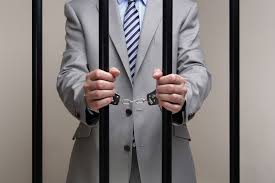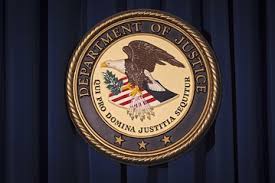The Sigelman Case and DOJ’s FCPA Trial Record
 In the aftermath of the Sigelman FCPA criminal trial, the FCPA Paparazzi is in full force hyperventilating about “trends,” “messages,” and “lessons learned.”
In the aftermath of the Sigelman FCPA criminal trial, the FCPA Paparazzi is in full force hyperventilating about “trends,” “messages,” and “lessons learned.”
As a former prosecutor with plenty of trial experience (over 75 criminal trials, two of which lasted six months or more, just to establish bona fides), I hate to disappoint everyone, but there is not much to be learned from the recent Sigelman trial. In fact, what happened at trial is nothing more than a regular occurrence in our criminal justice system.
Federal prosecutors win most of their trials but they also lose some. That is the nature of the beast, especially when it comes to white-collar crime where intent can become the focus of a trial.
Cooperating witnesses with plea agreements (or worse, immunity deals) can be very difficult witnesses. Juries hesitate when they testify and have to be won over to credit a cooperating witness.
DOJ’s recent trial of Joseph Sigelman in New Jersey federal court was nothing unusual in substance or result. Gregory Weisman, a cooperating witness, was not very effective, and in fact, had to admit that he lied on the stand, a day after testifying before the jury.
As a result, DOJ pulled the plug on its case, and offered the defendant a felony plea with little prospect of jail time. Sigelman took the plea rather than run the risk of a much more severe conviction by the jury.
Experienced trial lawyers know that criminal cases can fall apart. The government does not win them all, and there is nothing unusual about losing the Sigelman case, except that it happened in a high-profile FCPA case.
As a former prosecutor, I had plenty of cooperating witnesses (and law enforcement officers or agents) who self-destructed on the stand.
Judge Irenas was no fan of the government’s case. He clearly was not impressed with Mr. Weisman. Judge Irenas expressed his displeasure with his limited but sharp questioning of Mr. Weisman after Weisman recanted some of his testimony from the prior day. There was no way he was going to impose a sentence of incarceration on Mr. Sigelman.
What happened to the prosecutors in the Sigelman case, is not unusual for any prosecutor, nor was it the norm for DOJ’s FCPA criminal prosecutions.
Cooperating witnesses need to be carefully prepared to testify. Some witnesses require extensive work and preparation, and there are no guarantees on how they will present themselves before a jury.
Looking forward, there is not much that will change as DOJ continues its aggressive FCPA enforcement program. DOJ is going to bring more criminal cases against individuals for FCPA and related crimes. They will win some and they will lose some. I do not think they will change strategy – the Sigelman case was strong on paper when DOJ went to trial but fell apart as cases can do.
 DOJ’s cases sometimes go well in court and sometimes they do not. We can cite numerous examples of cases where federal prosecutors lost high-profile criminal trials – e.g. Bear Stearns criminal trial in the Eastern District of New York; Roger Clemens in Washington, D.C.; KPMG tax shelter fraud in the Southern District of New York; Antitrust Division’s recent loss of shipping cartel criminal case in Puerto Rico; W.R. Grace criminal asbestos environmental case in Libby, Montana; and plenty of other notorious cases.
DOJ’s cases sometimes go well in court and sometimes they do not. We can cite numerous examples of cases where federal prosecutors lost high-profile criminal trials – e.g. Bear Stearns criminal trial in the Eastern District of New York; Roger Clemens in Washington, D.C.; KPMG tax shelter fraud in the Southern District of New York; Antitrust Division’s recent loss of shipping cartel criminal case in Puerto Rico; W.R. Grace criminal asbestos environmental case in Libby, Montana; and plenty of other notorious cases.
A true trial lawyer knows that you win some and you lose some. For DOJ and FCPA criminal cases, there are wins (e.g. individuals have plead guilty to criminal charges or been convicted after trial), and losses (e.g. FCPA Shot Show sting). All it goes to show is the old adage – you win some and you lose some.
















The true measure of a good trial lawyer is the demonstration of good judgment and knowing when to back off. As my mentor said often, “At the courthouse, the only ‘principle’ (read ‘principal’) that counts is that which pays interest.”